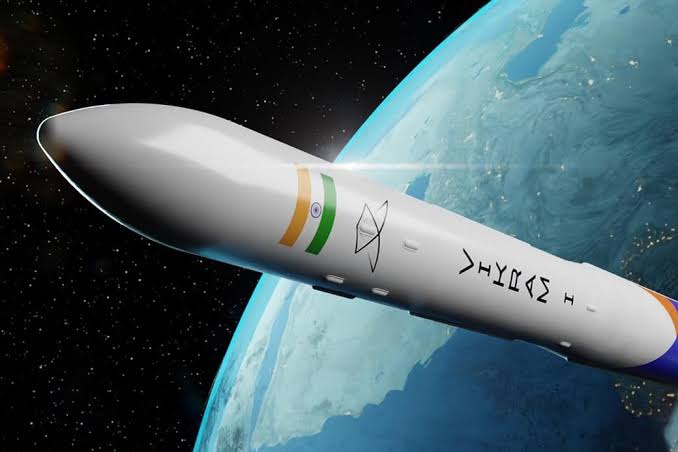Chennai: The countdown for the Friday launch of Skyroot Aerospace-developed rocket Vikram-S, with three small satellites, will begin three hours before the lift-off time which is fixed at 11.30 a.m, said an official.
“The countdown will begin three hours before the rocket’s lift off. The rocket is expected to lift off at 11.30 a.m. on Friday. The countdown time is less as it is a small rocket,” a senior official of the Indian Space Research Organisation (ISRO) told IANS.
Further, the single-stage rocket is powered with solid fuel which has also cut down the countdown time.
The official said the rocket will fly off from the ISRO’s sounding rocket launch pad at the Sriharikota rocket port.
On Friday, Skyroot Aerospace is expected to become India’s first private sector company to develop and fly a rocket.
The Hyderabad-based rocket startup was founded by Pawan Kumar Chandana and Naga Bharath Daka in June 2018. Till date, the company has raised Rs 526 crore funds and has about 200 employees.
Its 545 kg, six-metre-long rocket will carry three satellites from Space Kidz India, Bazoomq Armenia, and N-Space Tech India.
In 25 seconds after the liftoff and at an altitude of 17.9 km, the rocket’s engine will burn out. The rocket would eject its payload at an altitude of 81.5 km.
The Indian National Space Promotion and Authorisation Centre (IN-SPACe), Department of Space (DOS), on Thursday said it had authorised the rocket launch with three satellites.
According to IN-SPACe – the regulator for private space players, the Vikram-S rocket flight is a technology demonstration flight to showcase the capabilities of the company.
It carries with it three PCB-based payloads for three customers which are equipped with sensors for the measurement of acceleration, pressure and other aspects.
This rocket will help validate the technologies that will be used in the subsequent Vikram-1 orbital vehicle of Skyroot Aerospace that is planned for launch next year, subject to technical clearance by IN-SPACe, the regulator said.
However, the IN-SPACe has declined to answer a couple of crucial questions like when was the draft National Space Transportation Policy-2020 approved and what about the financial guarantee or the insurance cover to be provided by the rocket launching company to the sectoral regulator.
As per the original draft policy, IN-SPACe authorisation requires the financial guarantee or insurance cover by the proposer/rocket launch company as part of its ownership towards fulfilment of nation’s liability as per international agreements.
“As per the regulations up to certain value of damage, companies are liable and beyond that the state will foot the bill. The liability determination process is finalised and managed by INSPACe,” Secretary, Space and ISRO Chairman, S. Somanath, had told IANS.
He said for the rockets, the liability is determined by the type of the rocket mission, range and others. The ISRO will do this exercise. For the satellites, the issue of liability cannot be estimated and has to be determined case to case basis.
Skyroot Aerospace’s Chandana had told IANS that the insurance aspect has been taken care off but declined to mention the insurer’s name and coverage citing a non-disclosure agreement.
IN-SPACe Chairman Pawan Goenka told IANS that the talk on the queries will be done post the Skyroot Aerospace’s rocket launch while declining to answer the queries.
